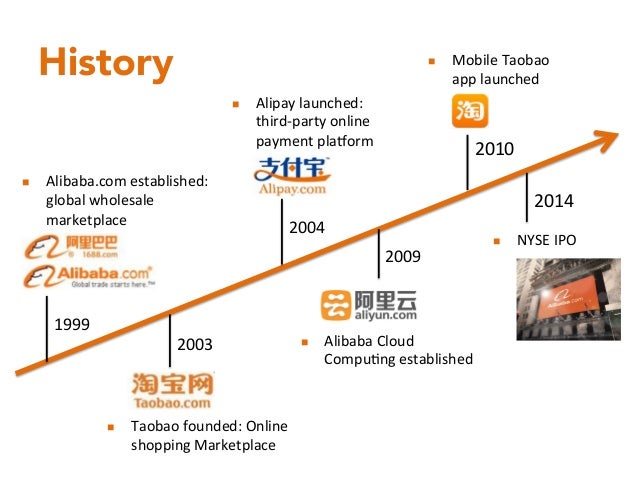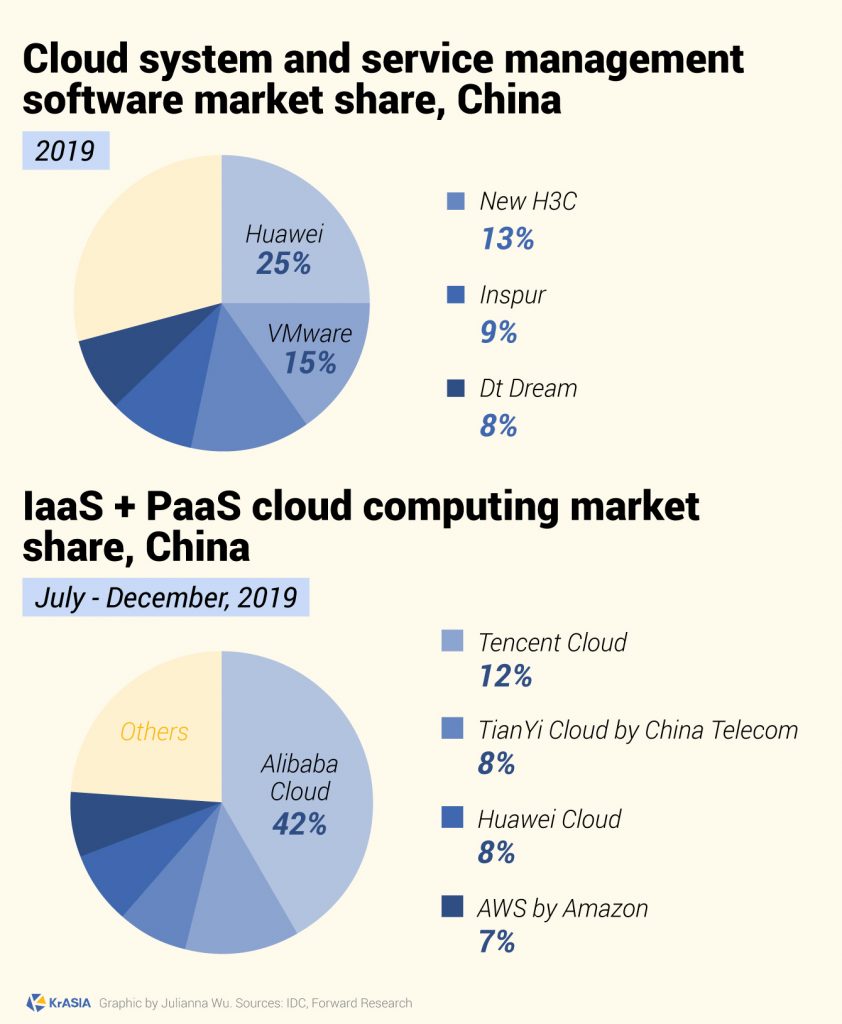The Emergence of Alibaba Cloud: A Pioneer in the Field
Alibaba Cloud, also known as Aliyun, is the cloud computing service division of the Alibaba Group, a multinational conglomerate specializing in e-commerce, technology, and various other sectors. Established in 2009, Alibaba Cloud quickly became one of the earliest major cloud computing services in China, positioning itself as a pioneer in the field. The initial offerings from Alibaba Cloud focused on providing infrastructure as a service (IaaS), platform as a service (PaaS), and software as a service (SaaS) to businesses and individuals.
At its inception, Alibaba Cloud aimed to differentiate itself from competitors by emphasizing its commitment to security, reliability, and customization. By focusing on these core values, Alibaba Cloud was able to attract a diverse range of clients, including small and medium-sized enterprises (SMEs), large corporations, and even government agencies. This early differentiation strategy proved successful, as Alibaba Cloud quickly gained market share and established itself as a significant player in the cloud computing industry.
Key Milestones in Alibaba Cloud’s History
Since its inception in 2009, Alibaba Cloud has experienced rapid growth and development, achieving numerous milestones along the way. In 2011, Alibaba Cloud launched its first data center outside of China, in Singapore, marking the beginning of its global expansion. This expansion continued with the opening of data centers in Hong Kong, the United States, and Europe, enabling Alibaba Cloud to provide services to clients worldwide.
In 2014, Alibaba Cloud became the official cloud services provider for the Olympic Games, demonstrating its reliability and capacity to handle large-scale events. This partnership was further strengthened in 2018 when Alibaba Cloud was selected as the exclusive cloud services provider for the Olympic Winter Games in PyeongChang, South Korea.
Throughout its history, Alibaba Cloud has launched various innovative products and services, including the Apsara Stack, a hybrid cloud solution, and the MaxCompute big data processing platform. Additionally, Alibaba Cloud has established collaborations with numerous global partners, such as Intel, Huawei, and SAP, to enhance its offerings and expand its reach.
To help readers visualize Alibaba Cloud’s growth and evolution, the following timeline highlights some of the company’s most significant milestones:
- 2009: Alibaba Cloud is founded in China.
- 2011: Alibaba Cloud launches its first international data center in Singapore.
- 2014: Alibaba Cloud becomes the official cloud services provider for the Olympic Games.
- 2015: Alibaba Cloud launches the Apsara Stack hybrid cloud solution.
- 2016: Alibaba Cloud’s MaxCompute big data processing platform is recognized as the world’s fastest.
- 2017: Alibaba Cloud partners with Intel, Huawei, and SAP.
- 2018: Alibaba Cloud is selected as the exclusive cloud services provider for the Olympic Winter Games.
Alibaba Cloud’s Global Expansion and Influence
Alibaba Cloud’s international growth has significantly impacted the global cloud computing market, with the company continuously expanding its global footprint and influence. As of now, Alibaba Cloud operates data centers in numerous regions, including Asia, Europe, the Middle East, and the United States. This extensive network of data centers enables Alibaba Cloud to provide low-latency, high-availability services to clients worldwide.
In addition to its data centers, Alibaba Cloud has established strategic partnerships and collaborations with various global organizations, further solidifying its position in the international market. For instance, Alibaba Cloud has partnered with local telecommunications companies in several countries to offer tailored cloud services to businesses and individuals. These collaborations have not only expanded Alibaba Cloud’s reach but also facilitated the adoption of cloud computing technologies in various markets.
Alibaba Cloud’s global services portfolio includes a wide range of offerings, such as infrastructure as a service (IaaS), platform as a service (PaaS), and software as a service (SaaS). These services cater to diverse industries, including e-commerce, finance, logistics, and media, providing clients with the tools they need to innovate, optimize operations, and reduce costs.
Moreover, Alibaba Cloud has been actively involved in promoting the adoption of cloud computing technologies in emerging markets. Through initiatives like the “AliGenie” artificial intelligence (AI) voice assistant and the “City Brain” smart city solution, Alibaba Cloud has demonstrated its commitment to driving technological advancements and fostering digital transformation on a global scale.
Innovative Solutions and Technologies Driven by Alibaba Cloud
Alibaba Cloud has been at the forefront of developing cutting-edge technologies and services, contributing significantly to the company’s success and influence in the cloud computing industry. Some of the key innovative solutions and technologies driven by Alibaba Cloud include:
- Artificial Intelligence (AI) and Machine Learning (ML): Alibaba Cloud offers a range of AI and ML tools, such as the TianGan series, which enable businesses to build and deploy intelligent applications. These tools facilitate tasks like image and speech recognition, natural language processing, and predictive analytics.
- Data Analytics: Alibaba Cloud’s data analytics services, such as MaxCompute and DataWorks, empower businesses to process and analyze massive volumes of data in real-time. These services help organizations make informed decisions, optimize operations, and enhance customer experiences.
- Internet of Things (IoT): Alibaba Cloud’s IoT platform enables businesses to connect, manage, and analyze data from IoT devices. This platform supports various industries, including manufacturing, transportation, and smart cities, by providing tools for data visualization, device management, and edge computing.
- Blockchain: Alibaba Cloud’s blockchain-as-a-service (BaaS) offerings allow businesses to build and deploy secure, scalable blockchain applications. These services help organizations streamline processes, enhance transparency, and reduce costs in industries like finance, supply chain, and logistics.
- Serverless Computing: Alibaba Cloud’s Function Compute service enables developers to build and run applications without managing servers. This serverless computing platform allows businesses to focus on application development, reduce costs, and scale resources on demand.
By continuously investing in research and development, Alibaba Cloud has established itself as a leader in innovation, providing businesses with the tools they need to succeed in an increasingly digital world.
Alibaba Cloud’s Role in Alibaba Group’s Ecosystem
Alibaba Cloud plays a crucial role within the Alibaba Group ecosystem, supporting and integrating with various businesses under the Alibaba umbrella. This integration fosters synergies and collaborations, creating a cohesive and interconnected network of services that benefit both Alibaba Cloud and its sister companies.
One notable example of Alibaba Cloud’s role within the Alibaba Group ecosystem is its support for Alibaba’s e-commerce platforms, such as Taobao and Tmall. Alibaba Cloud provides these platforms with robust infrastructure, data analytics, and machine learning tools, enabling them to handle massive volumes of traffic and data during peak shopping seasons like Singles’ Day.
Additionally, Alibaba Cloud supports other Alibaba Group businesses, such as Ant Group (the financial technology arm behind Alipay), Ele.me (a food delivery platform), and Fliggy (Alibaba’s travel service platform). By offering tailored services and solutions, Alibaba Cloud helps these businesses optimize their operations, reduce costs, and enhance customer experiences.
Furthermore, Alibaba Cloud’s role extends beyond the Alibaba Group ecosystem, as it actively collaborates with various external partners and clients. By integrating its services with those of other technology companies, Alibaba Cloud creates a more extensive and diverse ecosystem that benefits the entire cloud computing industry.
In summary, Alibaba Cloud’s position within the Alibaba Group ecosystem is pivotal, as it supports and enhances the performance of various businesses under the Alibaba umbrella. Through its innovative solutions and technologies, Alibaba Cloud fosters synergies and collaborations, contributing to the overall success and growth of the Alibaba Group and the cloud computing industry as a whole.
Challenges and Competition in the Cloud Computing Market
Alibaba Cloud, like any other player in the cloud computing market, faces numerous challenges and fierce competition from global giants such as Amazon Web Services (AWS), Microsoft Azure, and Google Cloud. To maintain a competitive edge, Alibaba Cloud has adopted various strategies, including:
- Investments in Research and Development: Alibaba Cloud continuously invests in research and development to create cutting-edge technologies and services that cater to the evolving needs of businesses. By focusing on innovation, Alibaba Cloud aims to differentiate itself from competitors and offer unique value propositions to its clients.
- Expanding Global Footprint: Alibaba Cloud has been aggressively expanding its global presence by establishing data centers and forming partnerships in various regions. This expansion allows Alibaba Cloud to provide localized services and support to clients, reducing latency and improving overall user experiences.
- Pricing Strategy: Alibaba Cloud has adopted a competitive pricing strategy, offering services at lower costs compared to its competitors. This approach has helped Alibaba Cloud attract price-sensitive clients and gain market share in various regions.
- Collaborations and Partnerships: Alibaba Cloud actively collaborates with other technology companies, academic institutions, and industry organizations to foster innovation, share knowledge, and create a more extensive and diverse ecosystem. These collaborations help Alibaba Cloud stay abreast of the latest trends and technologies, ensuring its solutions remain relevant and competitive in the market.
By focusing on innovation, global expansion, competitive pricing, and strategic collaborations, Alibaba Cloud is well-positioned to navigate the challenges and competition in the cloud computing market. As the market continues to evolve, Alibaba Cloud is likely to maintain its growth trajectory and solidify its position as a leading cloud computing provider.
The Future of Alibaba Cloud: Opportunities and Predictions
As Alibaba Cloud continues to grow and evolve, several opportunities and challenges lie ahead. By capitalizing on trends and addressing potential issues, Alibaba Cloud is poised to maintain its positive growth trajectory and solidify its position as a leading cloud computing provider.
- Artificial Intelligence and Machine Learning: Alibaba Cloud is expected to invest heavily in AI and ML technologies, aiming to provide more advanced and intelligent solutions to its clients. By focusing on these cutting-edge technologies, Alibaba Cloud can help businesses optimize their operations, enhance customer experiences, and drive innovation.
- Data Analytics and Insights: Alibaba Cloud is likely to expand its data analytics capabilities, offering businesses deeper insights and more sophisticated tools for processing and analyzing massive volumes of data. This focus on data analytics will enable Alibaba Cloud to help businesses make more informed decisions and gain a competitive edge in their respective industries.
- Global Expansion: Alibaba Cloud is expected to continue its global expansion, establishing data centers and forming partnerships in new regions. This expansion will allow Alibaba Cloud to tap into new markets, cater to localized needs, and provide businesses with low-latency, high-availability services.
- Security and Compliance: As data privacy and security become increasingly important, Alibaba Cloud will need to focus on enhancing its security measures and ensuring compliance with various regulations. By addressing these concerns, Alibaba Cloud can build trust with its clients and maintain its reputation as a reliable and secure cloud computing provider.
- Competition: Alibaba Cloud will continue to face fierce competition from global giants like Amazon Web Services, Microsoft Azure, and Google Cloud. To maintain its competitive edge, Alibaba Cloud must focus on innovation, providing unique value propositions, and offering competitive pricing strategies.
In conclusion, the future of Alibaba Cloud looks promising, with opportunities in AI, ML, data analytics, global expansion, and security. However, the company must also address challenges related to competition and regulatory compliance. By capitalizing on these opportunities and addressing potential issues, Alibaba Cloud is well-positioned to continue its growth and maintain its influence in the cloud computing industry.
How to Leverage Alibaba Cloud for Your Business
Alibaba Cloud offers a wide range of services and solutions that can help businesses optimize their operations, reduce costs, and drive innovation. To effectively leverage Alibaba Cloud for your business, consider the following guidance:
- Assess Your Needs: Begin by evaluating your business requirements and identifying areas where Alibaba Cloud’s services can provide value. Consider factors such as data storage, processing power, and specific industry needs.
- Select the Right Services: Alibaba Cloud offers a diverse portfolio of services, including infrastructure as a service (IaaS), platform as a service (PaaS), and software as a service (SaaS). Carefully select the services that align with your business needs and objectives.
- Migration Strategy: Develop a well-thought-out migration strategy to ensure a smooth transition to Alibaba Cloud. This may involve partnering with a managed service provider or utilizing Alibaba Cloud’s migration tools and services.
- Optimization and Cost Management: Continuously monitor and optimize your Alibaba Cloud environment to ensure you are getting the best performance and value. Implement cost management strategies, such as reserving instances or utilizing spot instances, to control expenses.
- Security Best Practices: Prioritize security when leveraging Alibaba Cloud for your business. Follow best practices, such as enabling multi-factor authentication, implementing access controls, and regularly patching and updating systems.
- Stay Informed: Keep up-to-date with Alibaba Cloud’s latest offerings, updates, and industry trends. Attend webinars, read documentation, and engage with the Alibaba Cloud community to ensure you are making the most of the platform’s capabilities.
By following these best practices, businesses can effectively leverage Alibaba Cloud’s services and solutions to achieve their objectives and maintain a competitive edge in their respective industries.






